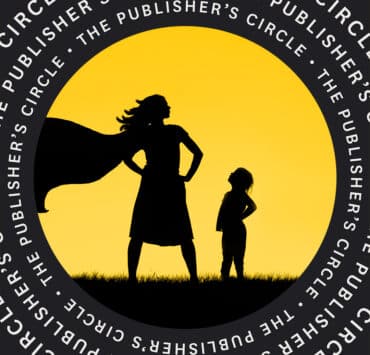|
Getting your Trinity Audio player ready...
|
In my decades-long corporate career, I have witnessed firsthand how artificial intelligence (AI) can transform businesses. I often liken it to having a versatile assistant capable of dissecting colossal volumes of data, streamlining processes, and revealing hidden patterns we might otherwise overlook. For executives like us, embracing AI offers a distinct competitive advantage in an ever-evolving marketplace.
As AI advances, some companies have opted to replace or downsize their HR and DEI departments, believing that AI can take on tasks related to hiring and cultivating diverse, inclusive environments. While seemingly cost-effective, this approach may have the opposite effect. AI is only as unbiased as the data it learns from, and if historical data contains inherent racial or ethnic biases, these biases could be perpetuated and even amplified.
The Real Life Consequences
A colleague told me how his company began relying more on AI-driven solutions than its DEI departments. The allure of cost-effectiveness was undeniable and for good reason. There is a business case for this—lowering expenses can improve profitability, which benefits everyone. But AI is still in its infancy and not ready to be weaned from human oversight.
For my colleague, it soon became apparent that AI’s supposed impartiality rested heavily on data that was far from unbiased. The outcome set the organization back in its DEI progress and damaged its credibility with its employees, who were already skeptical.
“Let’s not overlook the dangers AI-driven efficiency poses to our hard-won progress on diversity and inclusion.”
Mario Xavier Carrasco
Amazon faced a similar fate when it introduced and later discontinued its experimental AI recruiting tool, which was found to perpetuate systemic bias against women. The tool will likely remain offline until Amazon determines how to make it gender-neutral and free from other unintended biases. This is a classic example of the limitations of machine learning.
Let’s not overlook the dangers AI-driven efficiency poses to our hard-won progress on diversity and inclusion. How do we embrace AI in hiring without compromising the results? By understanding the risks and finding a balanced approach.
Understand the Risks
Executives must recognize that AI systems are not inherently unbiased. Algorithms are shaped by the data they are trained on, which can reflect societal biases. Studies have shown that AI can inadvertently discriminate against certain racial and ethnic groups in hiring, promotions, and resource allocation, hindering progress toward diversity and inclusion goals. If we replace human oversight with AI, we risk exacerbating these biases, creating a less diverse and inclusive corporate culture in the workplace.
The potential for bias in hiring is so concerning that states are now passing laws to protect job seekers. For example, a New York law that went into effect in July 2023 requires employers to have third-party companies audit their AI hiring software to ensure it is free of racial and gender bias. Companies must also publish the results of these audits. Businesses that use third-party AI hiring software cannot legally use these programs if they have not been audited.
“AI systems trained on historical hiring data can inadvertently learn and amplify biases, resulting in unfair and discriminatory outcomes for certain groups of job seekers.”
Mario Xavier Carrasco
Finding a Balanced Approach
AI has the potential to positively transform business as we know it. However, executives must take a balanced approach to incorporating it into their existing DEI efforts and hiring practices. As stated earlier, AI on the level we’re experiencing now is still in its infancy. Human intervention is required to implement the technology and oversee its outputs.
To do so, executives must champion ethical AI development and deployment, which requires engaging with diverse AI experts, promoting transparency in algorithms, and regularly auditing systems for biases. This is essential to keeping the hiring process people-centered and mitigating harmful outcomes.
Companies like Magellan Health and Brother International Corporation have successfully used artificial intelligence to bolster their recruitment marketing strategies, improving the candidate experience and increasing conversion rates. The onus is on employers to ensure these AI-driven solutions are effective and fair, eliminating bias at each stage of the candidate journey.
AI can potentially revolutionize hiring. It brings to the table a myriad of advantages, from streamlining the recruitment process to identifying top talent with unprecedented accuracy. But it also poses risks. AI systems trained on historical hiring data can inadvertently learn and amplify biases, resulting in unfair and discriminatory outcomes for certain groups of job seekers. As leaders, we have the opportunity to shape the future of work by championing innovation, ethics, and a people-centric approach in the age of AI.
The views expressed in this article are those of the author and do not necessarily reflect the position of Hispanic Executive or Guerrero Media.
Mario Xavier Carrasco is the cofounder and principal of ThinkNow, an award-winning cross-cultural research technology company

